A popular British tourist hotspot has banned walking barefoot, picnics, and drinking booze on the streets among a swathe of other prohibitions in a brutal crackdown.
Holidaymakers visiting Portofino, a small coastal town on the Italian Riviera in Liguria, are now facing fines for carrying out a variety of actions typically seen abroad.
Starting today, travellers in Portofino will no longer be able to walk through the town barefoot, in swimwear, or topless – or sit in the piazza in any of these conditions.
Consuming alcohol on public streets has also been prohibited, with only restaurants, bars, and designated areas left to booze in.
Begging, sitting, or lying on the streets, walls, sidewalks and parks have also been banned along with having picnics.
The new ordinance, signed by Mayor Matteo Viacava, will take effect during the summer season and temporarily expire on September 30.
Anyone who is caught violating the regulations before then will be subject to a fine of between £22 and £433.
The goal of the latest crackdown is to protect the ‘peace and quiet of residents and tourists’ in the exclusive coastal resort which brings in up to 100,000 tourists during peak season – despite the town only having a population of 400.
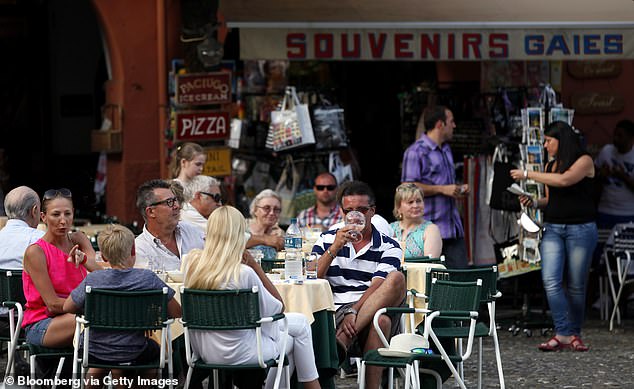
Holidaymakers visiting Portofino, a small coastal town on the Italian Riviera in Liguria, are now facing fines for carrying out a variety of actions typically seen abroad
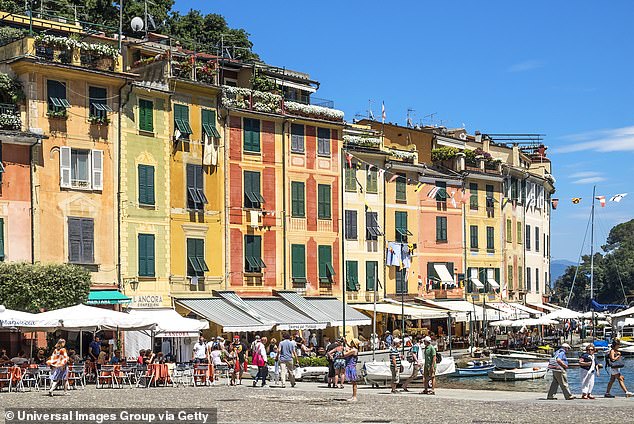
Starting today, travellers in Portofino will no longer be able to walk through the town barefoot, in swimwear, or topless – or sit in the piazza in any of these conditions
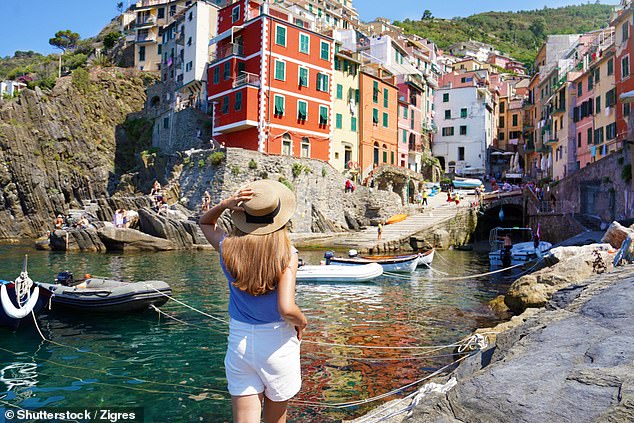
Consuming alcohol on public streets has also been prohibited, with only restaurants, bars, and designated areas left to booze in
The municipality had already attempted to combat troublesome tourists in 2023.
During that period, stopping at particularly popular viewpoints across the picturesque town was prohibited.
In another Italian coastal town, the port city of Diano Marina, the mayor, Cristiano Za Garibaldi, has also drawn a line under the situation and issued similar strict guidelines.
He told the Italian television station Telenord: ‘This is not a punishment, but a gesture of respect for the town, its residents, and visitors.’
Other cities across Italy have also implemented strict rules for tourists.
Picnics on bridges or monuments are prohibited in Venice, bathing in fountains is forbidden in Rome, and noisy shoes are taboo on Capri.
It comes after Albufeira, in southern Portugal, last month released a Code of Conduct banning everything from public nudity and sex acts to loud noise, and urinating in public.
The harshest penalties – £426 and £1,500 – will apply to those caught fully naked or engaging in sexual acts in public.
Partial nudity away from designated beach areas, public drinking, urinating or defecating in public, and creating excessive noise are also punishable by fines ranging from £255 to £1,277.
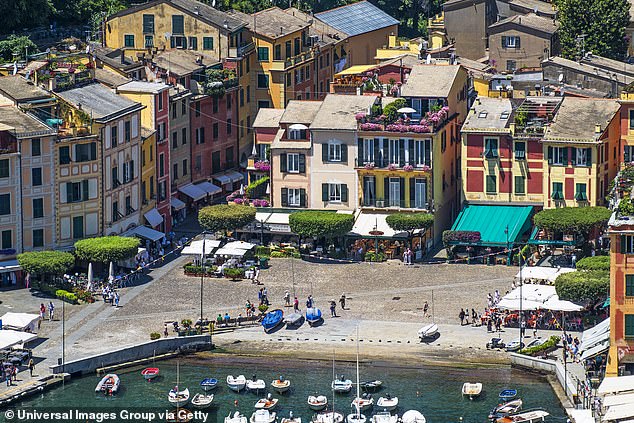
Begging, sitting, or lying on the streets, walls, sidewalks and parks have also been banned along with having picnics
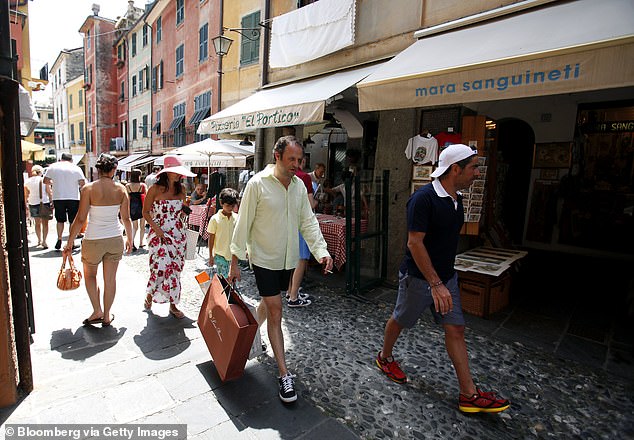
The new ordinance, signed by Mayor Matteo Viacava, will take effect during the summer season and temporarily expire on September 30
Other violations listed in the code include spitting, misuse of public furniture, and abandoning shopping trolleys, as Albufeira City Council seeks to restore order and cleanliness in high-traffic tourist zones.
The crackdown follows a series of incidents, including a viral video last year of eight British men dancing naked on a bar in broad daylight on Albufeira’s main party strip, Rua da Oura.
The UK Foreign Office issued a travel alert on Thursday, 26 June, warning British nationals of the new regulations, declaring: ‘The municipality of Albufeira has introduced a code of conduct which bans inappropriate behaviour in public places.
‘Check out the rules that are now in force. If you break the rules, you could be fined on the spot from between 150 and 1,800 euros.’
Speaking in May, Mayor José Carlos Rolo said the code was part of a broader strategy to repair Albufeira’s image, adding that the rules hope to ‘promote harmony’ between the tourism sector and local population.
Meanwhile, Faro Airport in Portugal started the rollout of e-gate access to UK arrivals last month ahead of the peak summer season in the Algarve.
The announcement comes after the Government said on May 19 that British passport holders will be able to use e-gates at more European airports as part of a UK-EU deal.
Since Brexit, Britons arriving at EU airports have generally been forced to queue for manned desks to have their passports stamped, rather than use automated gates with facial recognition technology – leading to long waits, particularly in peak periods.












